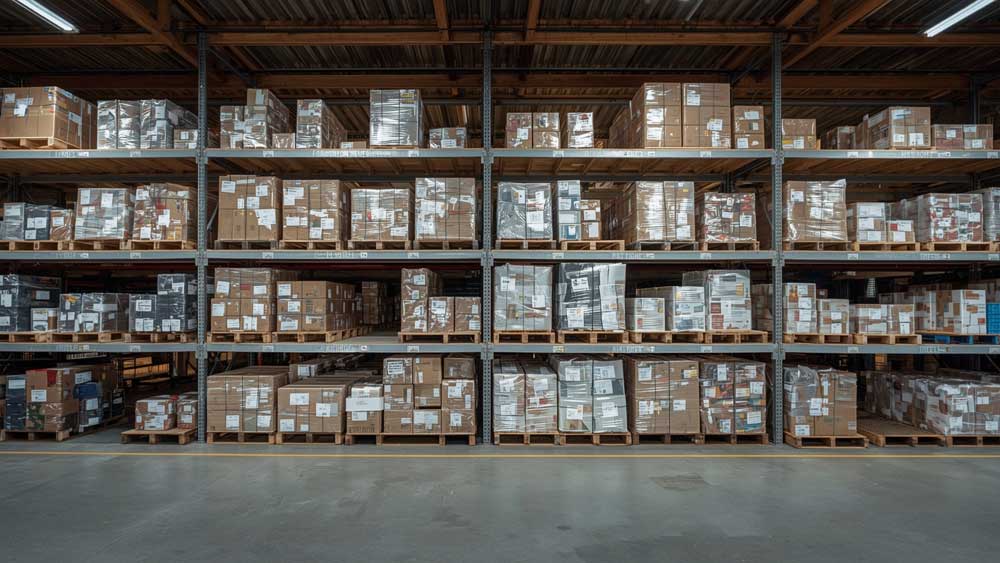Transport of Sensitive Products in Switzerland : Best Practices to Follow
The transport of sensitive products is a major concern for many businesses in Switzerland. These products—often classified as hazardous, perishable, or of high added value—require special precautions to ensure their safety, avoid environmental, health, or economic risks, and comply with applicable regulations.
Properly managing the transport of such goods is not only a legal obligation, but also a mark of quality and reliability for your company.
Here, we outline the essential best practices for the secure transport of sensitive products in Switzerland, providing clear insights into the rules to follow and the preventive measures to implement.
What Do We Mean by “Sensitive Products” in Transport?
Sensitive products are mainly defined by their vulnerability, their potential danger, or their specific requirements in terms of handling, storage, or transportation. These products require increased attention due to the potential risks they pose to people, the environment, or their own integrity.
Among the main categories of sensitive products are:
- Chemical products and hazardous materials, such as solvents, acids, compressed gases, explosives, flammables, or radioactive substances, which are subject to very strict regulations.
- Pharmaceutical products, which require strict control of temperature, hygiene, and storage conditions to prevent contamination or deterioration.
- Perishable food products, which demand an impeccable cold chain to ensure their freshness, sanitary quality, and compliance with Swiss standards.
- High-value goods, such as works of art, cutting-edge technological equipment, or sensitive electronic components, which are particularly vulnerable to theft, damage, or counterfeiting.
Each category imposes specific constraints and practices that companies must master in order to avoid any incidents or disputes.
Swiss Regulatory Framework for the Transport of Sensitive Products
Applicable National Regulations
In Switzerland, the transport of sensitive products is governed by several strict national regulations and authorities aimed at protecting public health, safety, and the environment. Key regulatory bodies include:
- The Federal Roads Office (FEDRO), responsible in particular for the road transport of hazardous goods.
- The Federal Office for the Environment (FOEN), which oversees the prevention of environmental risks related to dangerous substances.
- Swissmedic, the authority in charge of monitoring and controlling pharmaceutical products.
- The State Secretariat for Economic Affairs (SECO), involved in regulating certain sensitive or strategic goods.
The most important piece of Swiss legislation in this area is the Ordinance on the Carriage of Dangerous Goods by Road (SDR), which is directly inspired by the European ADR agreement.
International Standards to Comply With
Beyond national borders, several international regulations systematically apply to ensure maximum safety:
- ADR (European Agreement concerning the International Carriage of Dangerous Goods by Road): essential for companies operating across Swiss borders via land transport.
- IATA (International Air Transport Association): applies to any international air transport of sensitive and hazardous goods, enforcing strict safety, packaging, and documentation standards.
- IMDG (International Maritime Dangerous Goods Code): mandatory for any sensitive goods transported by sea, to prevent pollution risks or serious maritime accidents.
Adhering to these international standards is crucial for Swiss companies that export or import sensitive products, in order to avoid severe penalties or critical incidents.
Best Practices for the Transport of Sensitive Products in Switzerland
Correct Identification and Classification of Sensitive Products
The first essential best practice lies in the accurate classification of the products to be transported. This involves clearly identifying the risk level associated with each product based on criteria defined by ADR or SDR regulations in Switzerland.
Each product must be accompanied by a Safety Data Sheet (SDS or MSDS) detailing:
- The physical and chemical characteristics of the product.
- The identified risks (flammability, toxicity, corrosiveness, etc.).
- The specific handling, storage, and emergency response instructions.
This step is crucial and allows transport teams to take all necessary precautions from the outset.
Proper Packaging and Containment
Packaging plays a key role in securing the transport of sensitive products. It must be specifically designed to meet the required standards based on the type of product:
- Mechanical resistance for hazardous materials.
- Thermal insulation for pharmaceutical and food products.
- Shockproof or anti-theft protection for high-value goods.
Packaging must be certified and clearly labeled in accordance with Swiss and international standards, to provide immediate information to logistics and emergency teams when needed.
Secure Temporary Storage Before Transport
Temporary storage before shipment must comply with strict conditions, particularly in terms of safety, temperature, and traceability:
- Facilities specially designed for temporary storage, with strict access control.
- Maintenance of optimal temperature and humidity conditions, especially for food and pharmaceutical products.
- Continuous monitoring, using appropriate security systems.
These precautions help prevent any degradation or contamination risks before the transport even begins.
Choosing the Appropriate Mode of Transport
Choosing the right mode of transport is a strategic decision, based on several criteria:
- Urgency: Air transport is preferred for fast but costly delivery.
- Safety and environmental impact: Rail transport offers enhanced security for certain hazardous goods and reduces environmental impact.
- Cost and flexibility: Road transport is favored for its flexibility, especially suitable for last-mile distribution within Switzerland.
Training and Certification of Personnel
All involved personnel (drivers, logisticians, handling staff) must undergo specialized training, in compliance with ADR/SDR regulations for Switzerland.
This training ensures a complete understanding of emergency procedures and the safe handling of sensitive products.
Traceability and Monitoring of Sensitive Products
Rigorous tracking of sensitive products is essential. The use of modern technologies such as GPS tracking and temperature sensors is crucial to ensure:
- Full visibility over transport conditions.
- Immediate responsiveness in case of an incident.
- Documented proof of compliance with regulatory standards.
Risk Management in the Transport of Sensitive Products
Transporting sensitive products involves careful management of potential risks. These risks can impact not only the products themselves, but also the environment, human health, and the reputation of the companies involved.
Here’s how to anticipate and effectively manage these risks in Switzerland.
Main Identified Risks
The main risks related to the transport of sensitive products can be grouped into several distinct categories:
- Chemical and environmental risk: primarily linked to hazardous or polluting products, this includes leaks, accidental spills, or contamination of soil and water.
- Health and contamination risk: particularly critical in the food and pharmaceutical sectors, where even slight temperature changes or poor handling can degrade product quality or render it dangerous to the end consumer.
- Security risk (theft, sabotage, financial losses): high-value or technologically sensitive goods are often exposed to theft or sabotage, potentially resulting in major economic losses or commercial disputes.
A precise understanding of these risks allows for the implementation of effective mitigation strategies.
Effective Preventive Measures
To anticipate and prevent these risks, several best practices are recommended for Swiss companies:
- Implement regular inspections and internal or external audits to quickly identify and correct potential weaknesses in the logistics process.
- Establish clear, documented emergency procedures, which all personnel must be thoroughly familiar with. These protocols enable a swift and appropriate response in case of an incident.
- Invest in equipment tailored to the type of product being transported (e.g., temperature sensors for food or pharmaceutical goods, or anti-theft systems for sensitive items).
- Take out specialized insurance that covers damages related to the transport of sensitive goods, offering financial protection in case of a major incident or accident.
These preventive measures, when combined, ensure a significant reduction in the overall risk associated with transporting sensitive products.
Special Case: Transport of Pharmaceutical and Food Products
The transport of pharmaceutical and food products represents a special case among sensitive goods due to the very strict regulatory constraints in Switzerland.
Specificities of the Pharmaceutical Sector in Switzerland
The transport of pharmaceutical products is overseen by the national regulatory authority in Switzerland: Swissmedic. The main requirements include:
- Strict maintenance of an unbroken cold chain, ensuring full compliance with the temperatures specified by the manufacturer to preserve the integrity of active ingredients.
- Full traceability of production batches, from the factory to the final delivery point.
- Impeccable hygiene, to prevent any risk of microbiological or chemical contamination, which is especially critical for vaccines or sensitive biological products.
Companies involved in this type of transport must be certified according to specific standards, namely the GDP (Good Distribution Practices), recognized at both European and international levels.
Specific Constraints for Food Products
The food sector in Switzerland is also subject to strict standards, primarily aimed at preserving the sanitary quality of goods intended for human consumption:
- Absolute respect for the cold chain, with regular temperature checks during storage and transportation phases.
- Mandatory use of certified food-grade packaging, ensuring protection against external contamination.
- Continuous monitoring of freshness and food quality through strict traceability measures and systematic inspections at each logistical stage.
Compliance with these standards is monitored by the Federal Food Safety and Veterinary Office (FSVO).
Transport of Sensitive Products in Switzerland: A Non-Negotiable Requirement
The transport of sensitive products in Switzerland allows no room for compromise. Whether dealing with chemical, pharmaceutical, food, or high-value goods, strictly adhering to best practices is an absolute imperative to ensure product safety, protect the environment, safeguard public health, and maintain the commercial reputation of Swiss companies.
By consistently applying these practices—from precise product classification to proper packaging, careful transport mode selection, and continuous training of logistics teams—you significantly reduce the risk of incidents and enhance your competitiveness in both the Swiss and international markets.
Finally, it is highly recommended to regularly monitor regulatory updates, both national and international, to remain fully compliant with evolving legal and technical standards related to the transport of sensitive goods.
Key Takeaways:
- Sensitive goods transport requires special precautions and strict adherence to Swiss administrative requirements.
- The Swiss regulatory framework primarily includes the ADR/SDR ordinances for land transport, along with international standards like IATA and IMDG.
- Accurate identification, suitable packaging, staff training, and rigorous traceability are non-negotiable best practices.
- Effective risk management involves regular controls, clear emergency procedures, and appropriate insurance coverage.
- The pharmaceutical and food sectors have particularly high regulatory demands in Switzerland, overseen by authorities such as Swissmedic and the FSVO.









